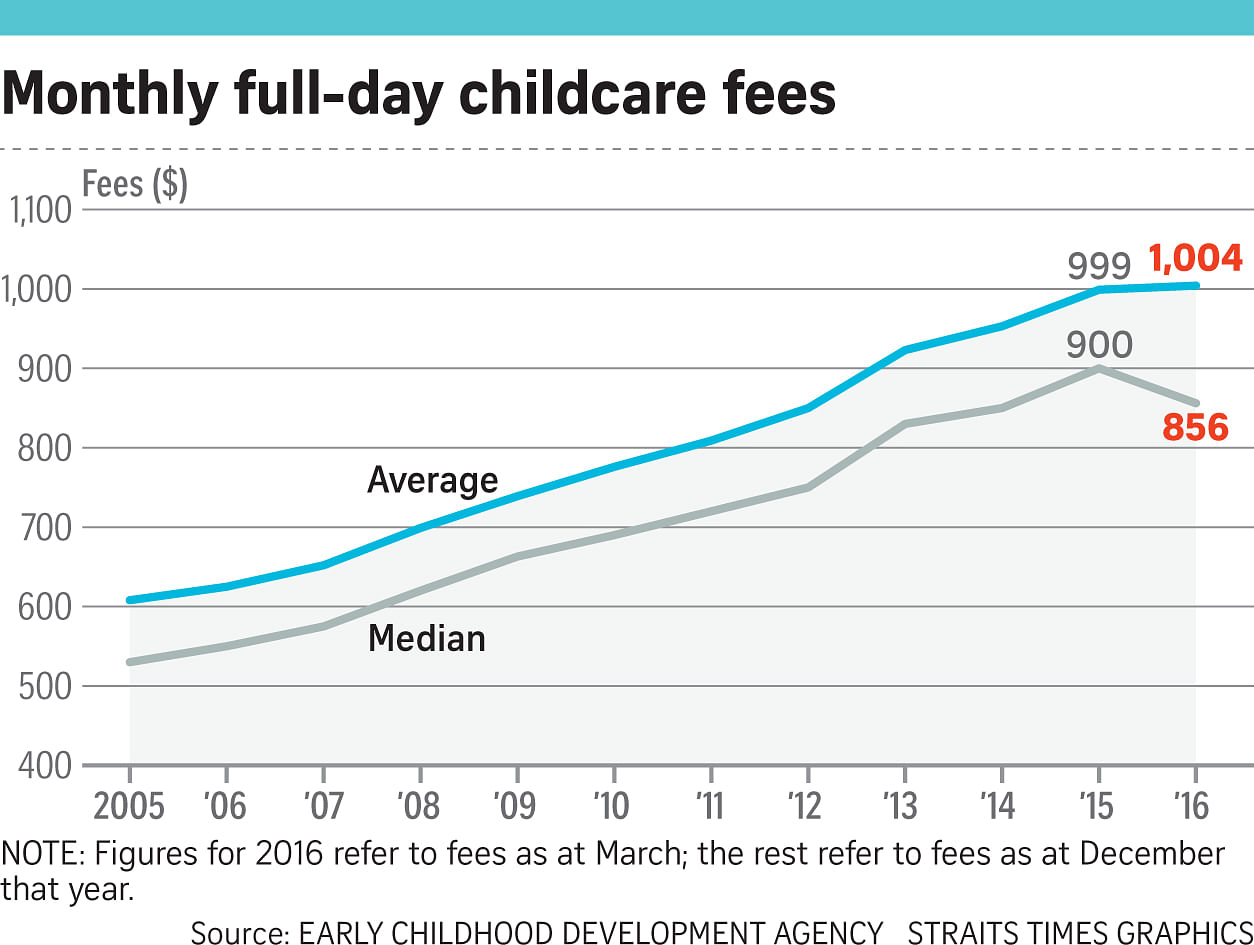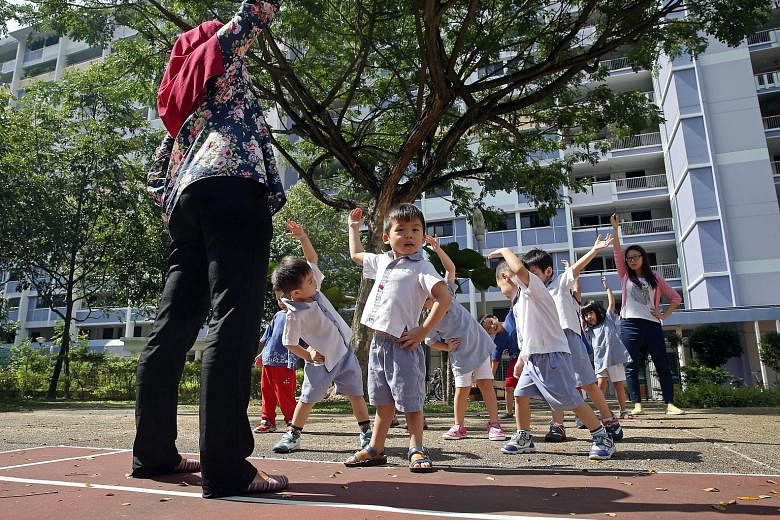When it comes to childcare services, are pricier ones better?
This question has become more pertinent, with the variation in childcare fees higher than before.
As of March, the difference between the average and median monthly fee for full-day childcare was $148 - the widest gap in at least a decade. The median fee was $856, and the average was $1,004.
The median fee separates the cheaper half of the 1,300 or so centres from the rest. The average fee is higher as the high costs charged by some centres - which can be over $2,000 - skew the data.
Experts said higher fees generally imply pre-school operators have more funds to offer better facilities and higher pay to attract more qualified teachers, but they added that parents should also consider other factors when looking for a quality centre. These include school leadership, interactions between teachers and children, and the centres' engagement with parents.
Dr Christine Chen, president of the Association for Early Childhood Educators (Singapore), said: "Leadership is crucial as it determines the structure under which the teachers are working, and the centre's culture of working as a team for the children's development."

Research shows effective principals lead to lower staff turnover rates - and this is also an indicator of quality, said SIM University senior lecturer Dora Chen, who specialises in pre-school education.
The quality of interactions between teachers and children is important too, she added. "What is the adult language like in the classroom? Is it mainly involving the use of close-ended questions, calling for expected answers? Or is it focused on higher-level thinking, encouraging kids to come up with ideas and solutions?"
Pre-schools' engagement with parents is also vital, said experts.
Dr Christine Chen said: "Both the centre and parents must be open and be willing to discuss dissatisfaction openly, instead of just writing to the authorities."
Meanwhile, Preschool for Multiple Intelligences founder Khoo Kim Choo, who has been in the sector for more than 25 years, acknowledged that centres which charge low fees may still have good quality.
This is because under the anchor and partner operator schemes, they get government grants but must keep fees low and have stricter quality requirements, she said.
The Government has been introducing such schemes since 2009 so that the mass market can benefit from quality childcare.
There had been concerns that the childcare sector could have a "luxury good problem" in which parents perceive more expensive programmes to be better.
In 2012, Mr Chan Chun Sing, then Acting Minister for Community Development, Youth and Sports, said: "We should be most concerned if the value-add of a programme is commensurate with the price. We will need to help parents distinguish things that are important and core for a child's development and other things that are good to have."
One way for parents to do a background check is to visit the Child Care Link website (www.childcare link.gov.sg) and check a centre's licence tenure. All centres have to be licensed, and the tenure can last six, 12 or 24 months. Centres with a 24-month tenure are considered to have "exceeded" requirements.
Besides considering various quality indicators, some experts suggest parents take their children along when visiting centres.
Dr T. Chandroo, chairman of the Association of Early Childhood and Training Services, said: "See how the child responds to the teachers. Does he seem interested in getting to know them? Does he enjoy the activities?
"By watching how he reacts, you'll have a better idea of whether the pre-school is a good fit."
READ MORE
Imparting values through incidental learning
Priority admission for kids from needy families


